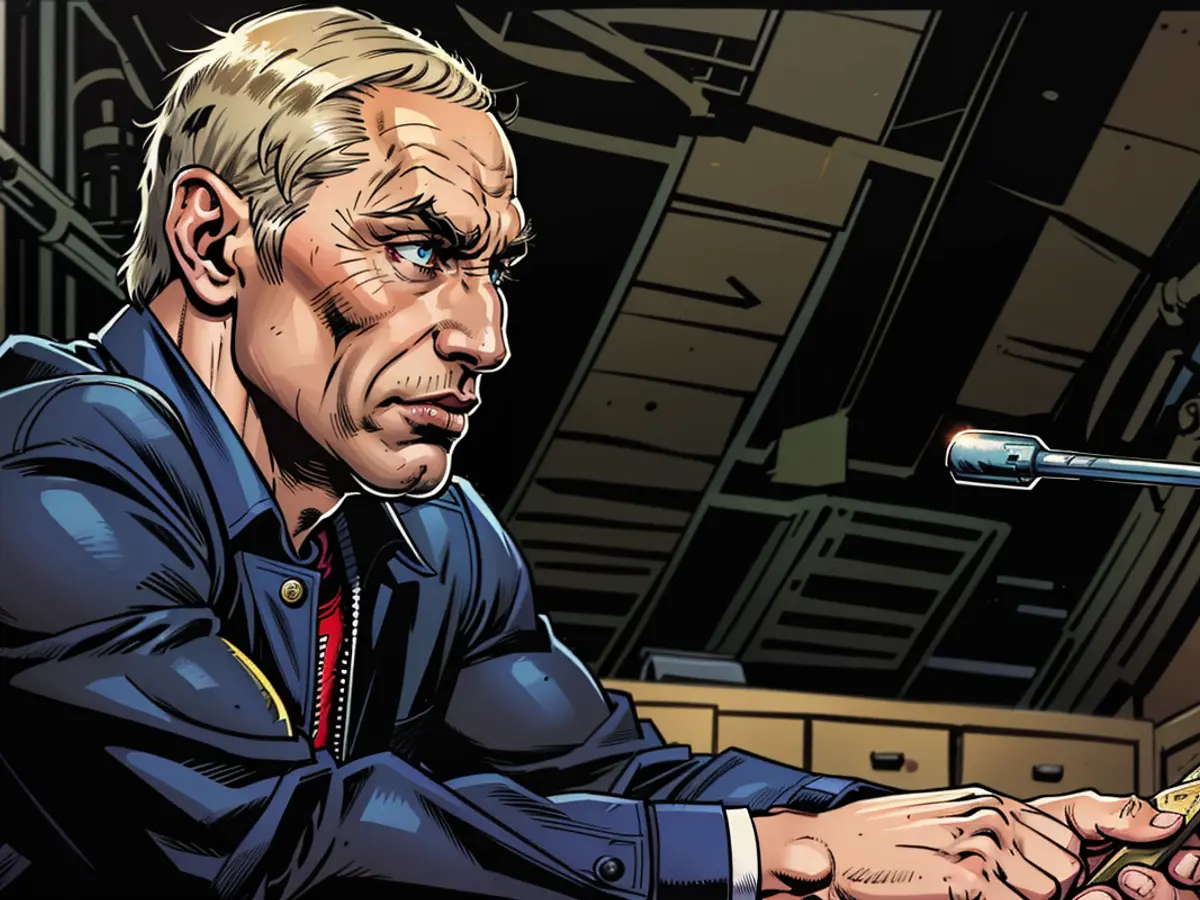Russia's leader, Putin, has strengthened his country's nuclear weapons policy.
Russia, as a nuclear-armed nation, is revising its nuclear weapons deployment strategy in response to the deteriorating global climate, as stated by Russian leader Vladimir Putin. Putin mentioned during a national security council meeting in Moscow that Russia has broadened the list of military threats for which nuclear weapons could be utilized as a deterrent.
With the new strategy, there's an increased risk, particularly for Western countries like the USA and France, of becoming a Russian targeted counterattack's objective if they offer support to non-nuclear Ukraine in any aggression against Russia. However, Putin did not confirm whether Russia would retaliate with nuclear weapons if such an attack occurred.
During the meeting, Putin emphasized that in the revised doctrine, an aggression against Russia by a non-nuclear state supported by a nuclear state should be viewed as a joint attack on the Russian Federation. The Kremlin released a video of Putin's speech at the beginning of the meeting of the security council committee on nuclear deterrence.
Putin has repeatedly cited the threat of nuclear weapons and raised nuclear alert levels during the conflict in Ukraine. Russia has been contemplating alterations to its nuclear strategy due to Western weapons shipments to Ukraine for quite some time now. The possibility of a preemptive strike has been discussed as well. Previously, the strategy only permitted the use of nuclear weapons in response to a threat to Russia's sovereignty. Putin emphasized that Russia has always handled nuclear weapons matters responsibly.
Earlier, Russian President Putin had repeatedly warned the USA and its NATO allies that allowing Ukraine to employ longer-range weapons supplied by the West for attacks on Russian territory would signify that Russia and NATO were at war.
Zelensky speaks at the UN General Assembly
While this transpired, Ukrainian President Volodymyr Zelensky issued a warning about the potential for a nuclear disaster resulting from Moscow's attacks on the Zaporizhzhia nuclear power plant. He claimed to have intelligence indicating that Putin was planning attacks on additional nuclear power plants in Ukraine. "A day like this should never happen," he emphasized at the UN General Assembly in New York. Russia consistently denies the accusations made by Zelensky.
"If, unfortunately, Russia causes a nuclear disaster at one of our nuclear power plants, radiation will not respect national borders, and various nations could experience the devastating effects," Zelensky said. He also implicated other countries in supplying Russia with satellite data on the Ukrainian nuclear power plants. As recently as Tuesday, Zelensky accused China of transmitting images of Ukrainian nuclear power plants to Moscow.
Zelensky lamented that the energy infrastructure of the country had been significantly damaged by Russian attacks. Millions of Ukrainians are now experiencing power outages. Putin aims to break Ukraine's resolve, Zelensky said, continually appealing to the global community to halt Putin. Ukraine has been defending itself against the Russian invasion for over two and a half years.
In his New York speech, he identified the withdrawal of Russian troops as a prerequisite for genuine peace. He reiterated that his two-year-old peace proposal, which involves the complete withdrawal of Russian forces from Ukraine and the punishment of war crimes, is the only viable solution. Zelensky urged the international community to support Ukraine. The frequently proposed ceasefire is nothing more than an attempt to end the conflict rather than pursue a "genuine, just peace," he said. "Divide the world, or unite as nations," he implored. "That will bring us peace."
In response to Zelensky's concerns about Russia's actions towards Ukrainian nuclear power plants, the President of the European Parliament expressed concern and called for a united response from the international community to deter any nuclear escalation. This situation underscores the potential global consequences if nuclear weapons are used, highlighting the need for diplomacy and de-escalation strategies.








